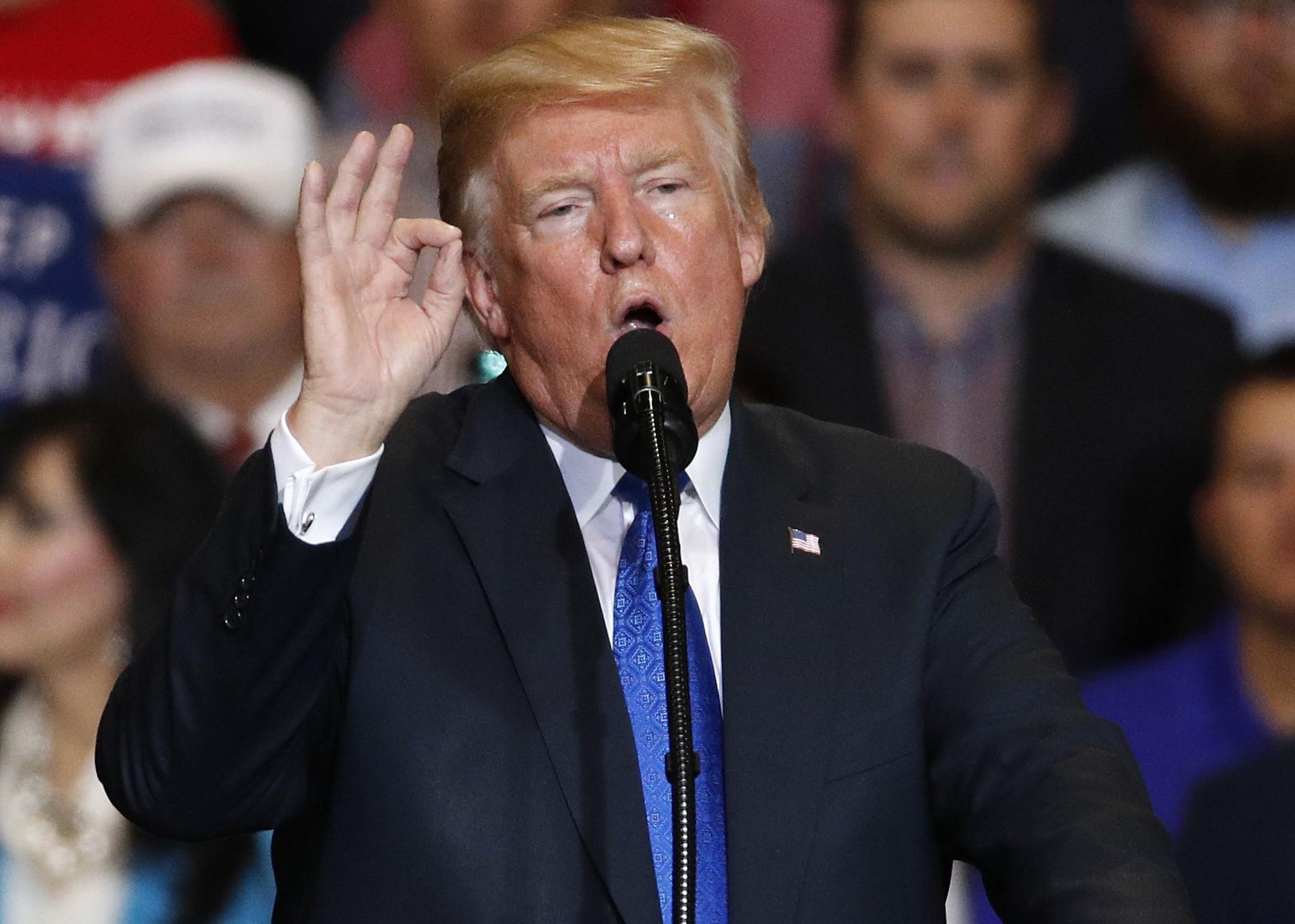
The Trump administration’s push to reduce Iranian oil exports to zero by strangling Tehran with sanctions stirred admiration, worry and bewilderment across the world stage this week.
The Trump administration’s push to reduce Iranian oil exports to zero by strangling Tehran with sanctions stirred admiration, worry and bewilderment across the world this week.
Since withdrawing the U.S. from the 2015 Obama-era nuclear agreement with Tehran in May, Washington has reimposed sanctions on the Islamic Republic. Even harsher penalties are set to start on on November 4 aimed at punishing countries who buy Iranian oil by blocking their access to U.S. markets and financial institutions.
The White House’s aggressive measures have been potent, energy analysts agree, with data showing Iranian oil exports plunging about 35 percent since April.
The New York Times business section acknowledged the successful strategy with a headline: “Trump Hit Iran With Oil Sanctions. So Far, They’re Working”.
“Nearly two months before American oil sanctions go into effect, Iran’s crude exports are plummeting,” the frequent critic of Mr. Trump wrote this week. “International oil companies, including those from countries that are still committed to the nuclear agreement, are bailing out of deals with Tehran.”
The New York Times added: “And remarkably, the price of oil in the United States has risen only modestly while gasoline prices have essentially remained flat. The current global oil price hovers around $80 a barrel, $60 below the highs of a decade ago.”
Israel’s leading paper, Haaretz, took another angle, in an opinion: “Trump’s Iran Sanctions Policy Is Working, but America Could Regret It”.
Haaretz economics editor David Rosenberg argued that pushing Iran’s daily oil exports down and rattling its economy is a “very dangerous game” because its Revolutionary Guard and hardline Mullahs “have a high level of tolerance for economic distress” and are unlikely to be pushed into negotiations.
The alternative and Washington’s goal, Mr. Rosenberg contends, is regime change, which is tricky.
“Trouble is that regime change is a risky business that can end in unexpected ways,” he wrote. “If that is what the Trump administration really wants, it is playing a very dangerous game, especially with a country as big as Iran.”
On Thursday, Mr. Trump acknowledged a critical piece of the “Zero Iran Oil Exports” plan: Beckoning OPEC to play its part in keeping the world oil markets stable as Iran’s contribution dwindles. Iran is the group’s third largest oil producer.
“Monopoly [OPEC] must get prices down now,” the president tweeted before the cartel’s meeting this weekend.
An opinion for Bloomberg Markets criticized the White House’s approach in a piece on Friday: “Trump’s OPEC Tweets Mix Fear and Delusion: It’s not a monopoly, and he’s as much to blame for high prices as anybody.”
Bloomberg’s Liam Denning said that while U.S. sanctions appear to be throttling Iran, Mr. Trump also looks nervous about oil price stability as American voters ready for November’s midterm elections.
“Blaming OPEC is nice and, importantly, fits well inside 280 characters. But it isn’t reality,” Mr. Denning wrote.






